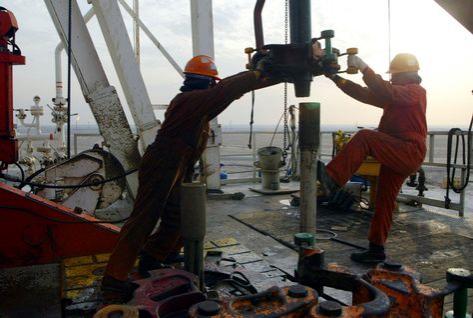
SAUDI & RUSSIA OIL VICTORY

Six months ago, when OPEC decided to keep production steady in the face of a collapse in the price of oil, analysts guessed that Saudi Arabia might be trying to flush out the new competition that had cropped up in recent years, like American-based shale gas producers.
Well, it turns out they were right. In an interview with The Financial Times published on Wednesday, an unnamed Saudi official confirmed that this is part of the kingdom's strategy, saying, "There is no doubt about it, the price fall of the last several months has deterred investors away from expensive oil including US shale, deep offshore and heavy oils," He added that, "Saudi Arabia wants to extend the age of oil ... we want oil to continue to be used as a major source of energy and we want to be the major producer of that energy."
Indeed, the recovery in the price of oil since February has caused the U.S. to cut its production, with the number of active rigs declining this week to the lowest level since 2010.
The rebound in oil prices has wide-reaching implications. For one, it certainly affects the situation in Russia and the Ukraine. As the price of oil stabilizes, the Russian government has become more comfortable with its fiscal situation, despite the fact that low oil prices and Western sanctions have sunk the country into a recession that will likely last through next year. Throughout 2015, the Russian economy has stepped back from the brink, with the Ruble and the Russian stock market rebounding significantly from this winter's lows. Russian deputy energy minister Kirill Molodtsov said in a statement on Wednesday that Russian producers are "comfortable" with the current price of oil, and that the nation is now less willing to collaborate with OPEC to reduce production.
Meanwhile, Russia's central bank is confident enough in the stabilization of the Ruble that it has begun to replenish its foreign exchange reserves, which it had allowed to fall to around $385 million from more than $500 million a year ago.
It could be, however, that Russia's government is just shoring up its firepower for the next dip in oil prices. After all, as prices rise, the economics of shale production in the U.S. and deep-water drilling in places like Brazil look more appealing. Earlier this month, Brazilian state oil giant Petrobras set a new record for deepwater drilling, and U.S. shale drillers are now saying that they're ready to ramp up production once again.
At the same time, the dynamics that drove the collapse in prices have not changed. Growth in demand for oil in China will continue to slow as the world's second-largest economy settles into a pattern of weaker economic growth. And the technological revolution that led to the United States surpassing Saudi Arabia as the world's largest producer of oil isn't abating anytime soon. As Fadel Gheit, Oppenheimer's senior oil analyst told Fortune back in March, ""I've been following this industry for 30 years ... and I can tell you that the shale revolution has changed the calculus. In my view shale will never die. It's here to stay."
oilandgaseurasia.com





